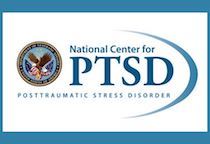 RECAMFT in collaboration with RPA, Healthcare Foundation, County of Sonoma Behavioral Health, Department of Veterans Affairs National Center for PTSD, and Stanford University presents:
RECAMFT in collaboration with RPA, Healthcare Foundation, County of Sonoma Behavioral Health, Department of Veterans Affairs National Center for PTSD, and Stanford University presents:
Wildfire Mental Health Collaborative Training
Skills for Psychological Recovery (SPR) Training
Providing disaster-recovery care is very different than on-going therapeutic care. Attend this evidence-based training to learn how to provide the care our wildfire survivors need.
- Friday and Saturday, July 27th & 28th, 2018
- 8:30 AM - 4:30 PM each day
- Hyatt Regency Sonoma Wine Country, enter/park on east side (conference wing) closest to Hwy. 101.
- 170 Railroad Street, Santa Rosa 95401. Map here.
- $40 event fee per person, 12 CEs
- Includes: training on Friday & Saturday, 12 CEs, and boxed lunches
- REGISTER AT: https://spr_2day_training.eventbrite.com
- PDF flyer here. Please distribute to all interested parties.

PRESENTERS
Dr. Doug Walker and Dr. Patricia Watson
Drs. Walker & Watson are nationally-acclaimed PTSD experts, educators and clinical psychologists focusing on disaster-behavioral-health interventions, disaster-mental-health, early intervention, and long-term resilience in communities impacted by disasters. They are associated with the Dept. of the VA National Center for PTSD, and Stanford University.
12 CEs for PhD*, RN*, LMFT, NP, LPCC, LCSW, LEP, LPT, LVN, SUD Counselors of all types
Skills for Psychological Recovery (SPR) is an intervention that aims to help survivors gain skills to manage distress and cope with post-disaster stress and adversity. It utilizes simplified skills-building components from evidence-based mental health treatments that have been found helpful in a variety of post- trauma situations. This SPR training will train practitioners to assist moderately-distressed fire survivors in effectively using these skills.
These SPR skills include: Problem Solving, Helpful Thinking, Building Healthy Social Connections, Positive Activity Scheduling and Managing Reactions.
- Describe the range of Skills for Psychological Recovery.
- Define the background and overview of Skills for Psychological Recovery core actions and strategies.
- List the client needs that would match each skill.
- Demonstrate introducing Skills for Psychological Recovery to a client.
- Describe the Problem Solving and Positive Activities Scheduling Skills.
- Explain the rationale for the Problem Solving and Positive Activities Scheduling Skills.
- Describe the Managing Reactions and Helpful Thinking Skills.
- Explain the rationale for the Managing Reactions and Helpful Thinking Skills.
- List the key components of the Rebuilding Social Connections Skill.
- Explain the rationale for the Rebuilding Social Connections Skill.
- Demonstrate each of the Skills for Psychological Recovery in case scenarios.
Contact: Alex Reed at mentalhealth@Healthcarefoundation.net for more information, ADA requests, or grievances.
Course meets the qualifications for 12 hours of continuing education credit for LMFTs, LCSWs, LPCCs, and LEPs as required by the California Board of Behavioral Sciences.
The Sonoma County Behavioral Health Division is approved by the California Association of Marriage and Family Therapists to sponsor continuing education for LMFTs, LCSWs, LPCCs, & LEPs. Sonoma County Behavioral Health Division maintains responsibility for this program/course and its content. Provider Number 135030, Exp. 02/06/2021
This course has been approved by California Board of Registered Nursing, B.R.N Provider No. 10298 expires 5/31/2020.
Provider approved by CCAPP-EI, Provider Number 4N-05-565-1118 for 12 CEH'S.
*CPA is co-sponsoring with Redwood Psychological Association (RPA). CPA is approved by the American Psychological Association to sponsor continuing education for psychologists and RNs and recognized by the BBS to offer CE credit for its licensees. CPA maintains responsibility for this program and its contents.


